Five Non-Victims of Cancel Culture Who Are Fighting Back and Winning
Here is a list of five media personalities and sports figures who fearlessly fought back against the intolerance of woke cancellation forces and managed to not only survive but thrive.
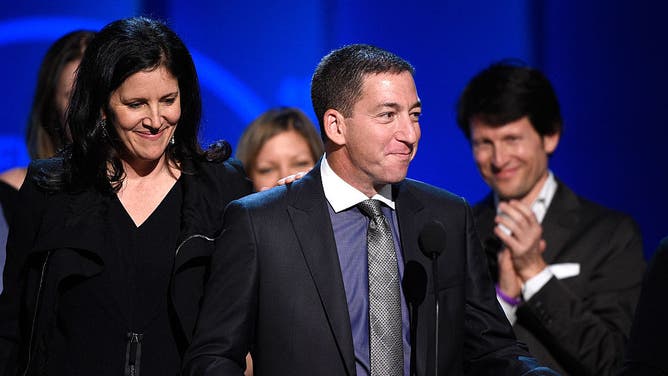
Journalist Glenn Greenwald. (Photo by Kevork Djansezian/Getty Images)
Glenn Greenwald
Journalist Glenn Greenwald is best known for connecting with Edward Snowden in a Hong Kong hotel room to produce the reporting that exposed the NSA’s sinister mass surveillance programs. And now he regularly appears on Tucker Carlson Tonight to continue speaking truth to those who wield real power wherever they may be.
Greenwald’s latest run-in with cancel culture came when editors at the media company he co-founded, The Intercept, refused to publish an article he wrote unless he removed all criticisms of Joe Biden. Instead of acquiescing to what he called a “repressive mentality,” Greenwald left The Intercept and took his talents to the independent publishing platform Substack where he now rakes in cash via a direct-to-audience subscription model.
Recently, armed intruders invaded Greenwald’s home in Brazil, bound him and his family and ransacked their residence for money and valuables. And even though Greenwald has ruled out a political motivation for the attack, here is an unwoke journalist who continues to produce reporting at a prolific rate all the while staring down not only censorship and character cancellation but the termination of his natural life at the hands of men with guns.
Greenwald exhibits a biblical sort of courage, and our freedoms are more secure as a result.
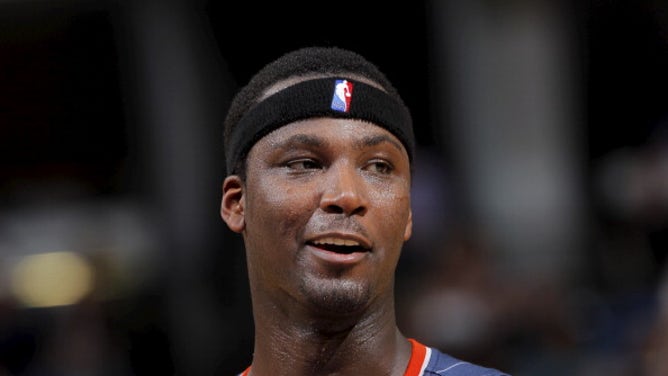
Kwame Brown (Photo by Rocky Widner/NBAE via Getty Images)
Kwame Brown
Brown was never the target of a Twitter cancellation mob but rather the woke sports media intelligentsia that often perpetuates the same mentality of bullying and intolerance that has come to define cancel culture.
Though the top pick in the 2001 NBA draft, Brown achieved just moderate success in the NBA and became best known as the butt of Stephen A. Smith’s recurring melodic shtick about how KkwWAamMEe BbrROowWNn was an all-time draft bust.
But now Brown will be remembered for a different reason.
After laying dormant for years, one last broadcasted swipe from former teammate Gilbert Arenas drove Brown to re-emerge and tear the hell out of everyone like the lion in that Christoper Walken speech. From his truck and his tractor, Brown published videos challenging everyone from sneering former NBA players to thought-leading woke linguists like Jemele Hill and Charlamagne Tha God. And in standing up for himself, Brown makes convincing arguments against certain tenants of woke orthodoxy.
When Charlamagne Tha God irresponsibly likened Brown’s sudden defense of his own reputation to Brown’s father snapping and committing murder, Brown made an argument for individualism that would make Ayn Rand proud: “I don’t have nothing to do with what my daddy did. I got my own hands, my own arms, and my own brain.”
And when Jemele Hill insinuated that Brown’s confrontational tone amounted to choosing violence, Brown dismissed Hill’s “liberal” talking points and informed Hill that violence requires physicality, debunking the woke notion that words are violence in the process.
Brown’s father is in fact a convicted murderer. And as a child, Brown walked the streets barefoot because he had no shoes. But those circumstances were unable to prevent Brown from achieving a level of prosperity and determination few of us will ever realize.
Kwame Brown is an American success story.
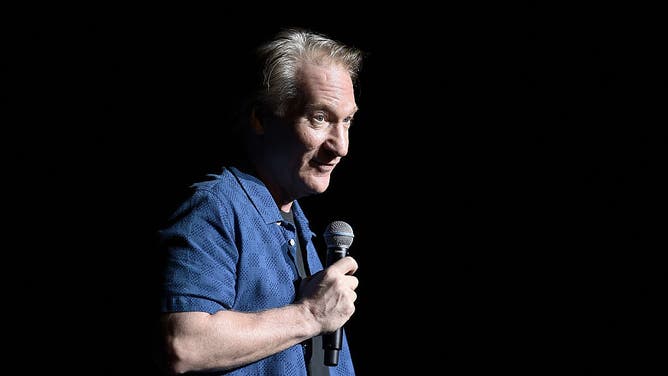
Bill Maher (Photo by Nicholas Hunt/Getty Images)
Bill Maher
Maher is a lifelong liberal in the classical sense, unafraid to offend and devoted to principles of free expression and tolerance. And it is those very principles that now put him in opposition to the woke as they increasingly attempt to control speech.
Way back in 2014 on Real Time with Bill Maher, guest Sam Harris was describing how liberals have conflated legitimate criticism of Islam with bigotry, to which Ben Affleck interrupted and called the thought “gross” and -- wait for it -- “racist.” But Maher came to the defense of Harris, and together they parried Affleck’s attacks with data and logic, always the kryptonite of the woke.
In an early 2021 monologue, Maher took on cancel culture directly, calling it both “real” and “insane” as he implored celebrities to “stop apologizing” to the mob. Around the same time, he poked fun at the Oscars, calling them a “downer” because the awards ceremony went recognizing good movies to virtue signaling and making audiences feel guilty about their privilege.
For his recent unwoke outspokenness, Maher has been called an angry white man who should stop appropriating and weaponizing the term “woke.” But here's to hoping that Maher continues to advocate for the freedom to express and create however one sees fit. The quality of movies and entertainment depends on it.
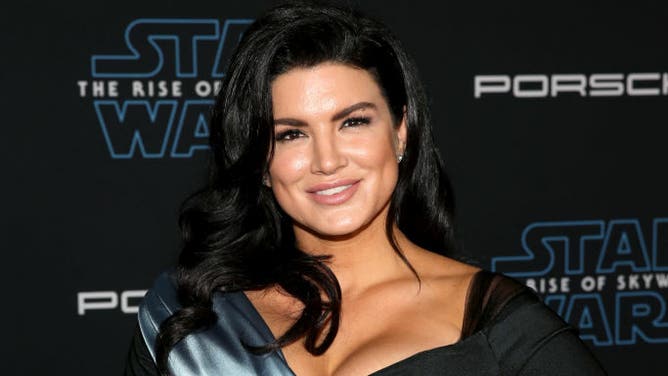
HOLLYWOOD, CALIFORNIA - DECEMBER 16: Gina Carano arrives for the World Premiere of "Star Wars: The Rise of Skywalker", the highly anticipated conclusion of the Skywalker saga on December 16, 2019 in Hollywood, California. (Photo by Jesse Grant/Getty Images for Disney)
Gina Carano
Carano is an MMA fighter turned actress who has appeared in movies like Deadpool and Fast and Furious 6 as well as the hit TV show The Mandalorian. Carano is a textbook worthy case in how speaking honestly and having the wrong opinion can result in your being marked for cancellation by an online mob.
Carano has drawn Twitter criticism aplenty for having an assortment of deplorable opinions on matters of voter identification and use of gender pronouns in social media profiles. She has even been known to -- gasp! -- make jokes about masks.
But it was a tweet that seemingly compared Jews being beaten in the streets by their neighbors to the social pressure being felt by conservatives that uniquely enraged the mob and drove Disney executives to finally cut ties with the actress.
Now at this point in the culture, any shorthand reference to Nazism on the internet should be an engagement non-starter, which is why Godwin’s law is a thing. But Carano is just one of many who have looked to the darkest period in history to make a comparison to a modern political occurrence. It just so happened that Carano is on the wrong political team and happened to be employed by Disney, a leading woke arbiter of allowable opinion.
But now with all that in the rearview mirror, Carano has teamed up with Ben Shapiro and The Daily Wire, and together they are set to produce an upcoming film. When you’ve made a career out of absorbing punches to the face, the threat of a little social backlash is nothing in comparison.
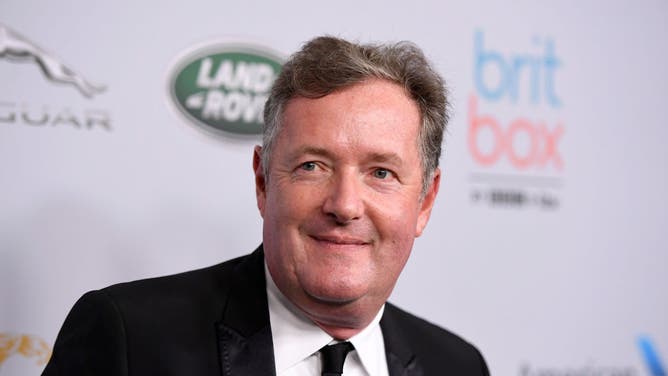
Piers Morgan (Photo by Frazer Harrison/Getty Images for BAFTA LA)
Piers Morgan
Morgan entered the American public conversation in the early 2010s when his show Piers Morgan Live started airing on CNN, the very same program where Ben Shapiro notoriously handed Morgan a copy of the constitution in a heated debate over gun control.
Recently, Morgan stirred up controversy across the entire western world after being critical of Meghan Markle in the wake of the royal’s televised interview with Oprah. Morgan called the interview a “trashathon” because it made the entire royal family out to be a bunch of white supremacists. He said Markle told an incomplete story about the royal family having “conversations” about her son’s skin color. Morgan was especially critical of Markle’s insinuation that her son would not be given a princely title because of his skin color, which Morgan said was “completely untrue.”
For his comments, Morgan was lambasted as a vile racist who was "whitesplaining" by challenging Markle’s version of her own truth. But as Morgan would point out and common sense would validate, there is no such thing as someone’s truth, there is just truth. After one final confrontational exchange with fellow commentators over the controversy on Good Morning Britain, Morgan walked off the set and promptly resigned from his position.
As Morgan shows us, when given the options of participating in lunacy or withdrawal, sometimes withdrawal is the correct answer.
More on cancel culture
According to Google’s Keyword Planner, which is used by advertisers to research searcher behavior, searches for “cancel culture” were virtually nonexistent until early 2019. But since then, the volume of those searches has risen stratospherically.
Even though it feels like we’ve been forever stuck in this moment where the stakes in everyday interactions are unsustainably high, historically speaking, cancel culture is a new phenomenon that came on suddenly.
And we can make it go away as quickly as it came. As searches for “cancel culture” shot up, so too have searches for “end cancel culture” and “cancel culture sucks.” And according to a Harvard CAPS / Harris poll, 64% of Americans see cancel culture as a threat to freedom.
We know from Emerson that social reform starts with the individual. So to the majority of you individuals out there who want to end cancel culture as much as I do, the time for action, even small action, has come. Interested but unsure where to start? Check out this list of ten ways to resist woke culture written by a former New York Times editor who resigned from what used to be the country’s newspaper of record because she wanted to be able to speak freely.